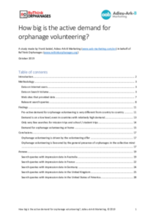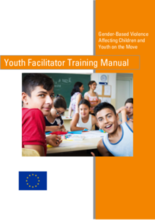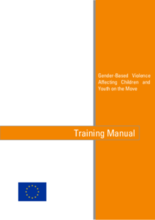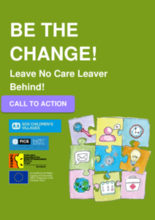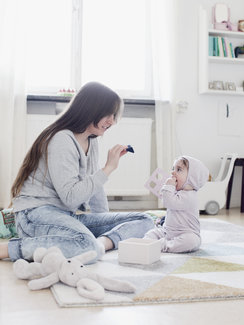

Displaying 131 - 140 of 424
This research gathers data on the volume of search queries that indicate an intention to do orphanage volunteering in a foreign country in order to gauge the pro-active demand for this type of volunteering in five different countries (Australia, France, Germany, United Kingdom, United States of America).
This study investigated whether information regarding parents' response to an attachment-based intervention impacted placement decisions and agreement among decision makers.
This study provides an illustration of a research design complementary to randomized controlled trial to evaluate program effects, namely, participatory peer research (PPR). The PPR described in current study was carried out in a small sample (N = 10) of young adults with mild intellectual disabilities (MID) and severe behavioral problems [in residential care in the Netherlands].
The purpose of this webinar is to shed light on the specific experiences and issues of unaccompanied and separate girls in the European Response.
This article and accompanying video from Human Rights Watch outlines some of the flaws uncovered in the procedures of age assessment of unaccompanied minors in France’s Alpine region.
This video from BBC News tells the stories of mixed-race children in Africa who were separated from their mothers, taken from their countries of origin, and brought to live with "host families" in Belgium during the Belgian colonial period.
This manual provides guidance on how to train up to 60 youth, ages 16-24, from four project countries with the goal of increasing awareness and understanding of gender-based violence (GBV) amongst children and youth on the move.
The focus of this training is on building the knowledge and capacity of care professionals from Greece, Belgium, Malta and Romania to prevent, identify and respond to gender-based violence (GBV) affecting children and youth on the move, including unaccompanied minors.
The ISSA Conference 2019 will be packed with the latest learnings and insights from the Early Childhood Development field, offering two days of knowledge sharing, dialogue and networking.
The content of this Call to Action comes from what was heard from young people with care experience as well as from the professionals working with them. It outlines three primary actions to realize careleavers' rights in the law and in practice and to allocate adequate funds for realizing these rights.

